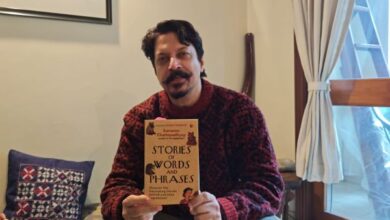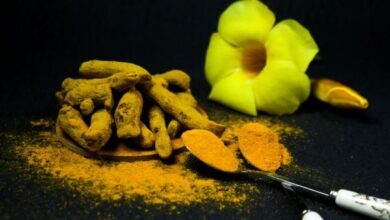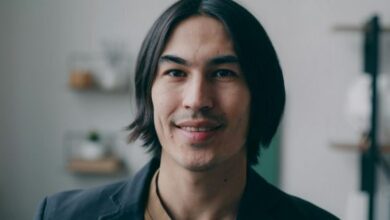A tribute to heroes in white coats
Despite their contributions, violence against doctors has risen since 2006, writes Dr Anjana Kannankara

The doctors every single day impact the lives of patients and work hand-in-hand with a team of healthcare professionals to deliver the meaning of care. Through their actions from a simple bedside gesture to a life-saving procedure, doctors make a difference each and every day. This Doctor’s Day, let us celebrate our physicians all over the world who has touched our lives in a special way.
There’s a little argument that it is tough being a physician these days. And let’s not forget that for all the challenges that come their way, there’s little to no recognition for the long days and extra patience that come with working in the field of healthcare today. The point to be stressed here is that physicians deserve more recognition for their hard work and dedication. While Covid-19 has brought great amount of fear, anxiety and stress in the minds of people, violence against doctors has risen in epidemic proportions.
The incidence of reported violent crimes against doctors in India has been increasing from 2006, with the highest violence rate occurring in Delhi, Maharashtra and Uttar Pradesh. Violence against doctors has also increased in other parts of Asia, such as China, Pakistan, Nepal and Sri Lanka. An ongoing study by the Indian Medical Association (IMA) reports that 75% of doctors in India have faced violence at some point of time in their life, and most of the time, it is verbal abuse but sometimes escalates to even physical assault.
The doctor-patient relationship has deteriorated so much in the society that the physicians become easy targets to the blame game. It is sad that the society judges the doctors’ negligence or malpractice most of the time without seeking the expert opinion. What remains a fact is that negligence or malpractice has specific meaning and importance in health sector and that needs to be proven, fulfilling a few predetermined criteria. Moreover, people need to understand and believe that not every bad outcome is the result of negligence.
A brief analysis behind the violence against doctors may be helpful in understanding the unfortunate situation. Whenever the death of a close relative occurs, individuals go through stages of changes in their mind. One of the important defense mechanisms of the initial stage is displacement, which means the transfer of emotion from a person, object, or situation to another source.
For instance, after the death of a family member, the family may blame the doctor for failure to provide adequate care, and may thus involuntarily avoid blaming themselves for failure to secure timely medical help. In some cases, the families accuse the doctor and hospital to avoid paying the bill. They show aggressive behaviour and violence with the excuse of malpractices and get the attention of media. Sometimes it is just the human psychology of enjoying the pain and sufferings in a superior class when they lose in a fair competition that comes into play.
A couple of decades ago, doctors were most respected in the society and were treated next to God. But the alarming rise of private institutions rolling out maximum number of medical students raises concerns about the quality of healthcare. A student completes his medical graduation from these private institutions with high expense, as a secure and prestigious way of earning his bread. The huge amount of investment strikes the mind and space for caring and serving patients.
A difference of knowledge, attitude and skill is noticeable between graduates from private and public medical colleges, especially in this generation, which might reflect in patient care as well.
The governments too never focus on the benefits and satisfaction of doctors, rather they dump loads of extensive working hours and patients. The situation is becoming worse due to increasing job dissatisfaction and fear of being humiliated. Physicians are not immune to becoming anxious or depressed. The shameful attitude and lack of appropriate initiative to support from the concerned authorities is frustrating the doctors and encouraging the health sector terrorists. The situation is pathetic for the professionals but the society enjoys the mudslinging and the leaders turn a blind eye for fear of losing their vote banks.
There is hardly any doubt that strict action must be taken against attackers but with the root causes not being addressed in any way, the attacks on doctors are unlikely to stop. Stringent laws must be framed and implemented to protect doctors from mob violence and assaults. Citizens must be necessarily discouraged from taking law into their hands. Security in hospitals must be beefed up and the number of persons accompanying the patient into the hospital may be restricted keeping in view the inconvenience to other patients.
Times have undoubtedly changed and there arises an immediate need for better communication with the patients. The impatience and intolerance is a common trend in developing societies with swiftly changing socioeconomic structures. Healthcare providers in India are grossly underprepared for this transformation — lacking the infrastructure and political willingness to support them. As a result, we now witness persistent discontent, aggression, and violence in the patient population.
An urgent change in the attitudes of healthcare providers and the patient community towards one another is most essential in this scenario. Efforts from the side of medical professionals to take the patient community into confidence can hugely help as building up of mutual trust is a crucial factor.
As a bottom line, let us not forget that doctors work round the clock, saving lives of millions of people every day with minimum reward- most importantly their role in containing the virus during these pandemic times. It would be worthwhile trying to see their point of view also; to acknowledge and appreciate the many positive aspects they do for patients, their family and for the society as a whole. More than anything, let’s us uphold the passion, dedication and devotion displayed by the doctors of all generations even in the face of adversity, towards human kind, for immersing themselves in this profession not for a source of income but for their genuine love to serve!
(The author is chairperson CSA, Director at TGL, Editor of The International Journal and Senior Director at FWO)





